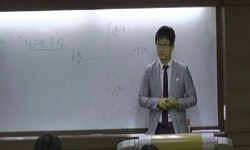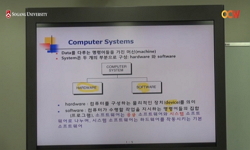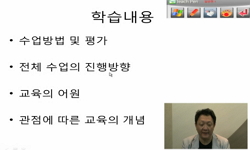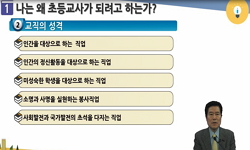국문초록 고전문학을 통한 효사상 교육 방안 연구 - <심청전>를 중심으로 박 하 진 대진대학교 교육대학원 교육학과 국어교육전공 예로부터 우리민족은 효(孝)를 삶의 근본으로 생각...
http://chineseinput.net/에서 pinyin(병음)방식으로 중국어를 변환할 수 있습니다.
변환된 중국어를 복사하여 사용하시면 됩니다.
- 中文 을 입력하시려면 zhongwen을 입력하시고 space를누르시면됩니다.
- 北京 을 입력하시려면 beijing을 입력하시고 space를 누르시면 됩니다.
https://www.riss.kr/link?id=T14444463
- 저자
-
발행사항
포천 : 대진대학교 교육대학원, 2016
-
학위논문사항
학위논문(석사)-- 대진대학교 교육대학원 : 교육학과 국어교육전공 2016. 8
-
발행연도
2016
-
작성언어
한국어
- 주제어
-
발행국(도시)
경기도
-
형태사항
26 cm
-
일반주기명
지도교수: 정흥모
- 소장기관
-
0
상세조회 -
0
다운로드
부가정보
국문 초록 (Abstract)
국문초록
고전문학을 통한 효사상 교육 방안 연구
- <심청전>를 중심으로
박 하 진
대진대학교 교육대학원
교육학과 국어교육전공
예로부터 우리민족은 효(孝)를 삶의 근본으로 생각하고 예절을 매우 중요시 여기는 나라로 ‘동방예의지국(東方禮儀之國)’으로 불러져왔다. 효(孝)란 혈연관계를 기반으로 만들어진 것으로 자신을 낳아주시고 길러주시고 보살펴주신 부모님의 은덕에 대한 인간의 당연한 도리로서의 봉양을 말한다.
한국인의 도덕의식은 가족에 대한 강한 유대의식과 소속감에서 싹터 나오는 것이라 볼 수 있다. 그 가운데 가장 기본적인 형식은 부모-자식관계라 할 수 있다. 즉 부모의 자식에 대한 헌신적인 사랑과 자녀의 부모에 대한 감사와 존경의 태도이다.
그러나 한국은 해방과 함께 서구의 자유민주주의와 신문명을 받아들이면서 한국의 전통적인 효사상은 점차 소홀히 다루어져 오고 있다. 60년대 이후 경제발전으로 인한 사람들의 가치관이 동요(動搖)되고, 토지를 기반으로 결합되어 있었던 대가족 제도는 서서히 부부를 중심으로 하는 핵가족제도로 가족 단위의 변화를 일으켜가고 있다. 전통사회에서의 효사상은 대가족 제도로 가족이란 울타리 안에서 자연스럽게 예절을 습득하였고 어른을 공경하는 모습을 어릴 적부터 보고 배우며 자랄 수 있는 환경이 가능했다. 그러나 산업사회의 이행으로 나타난 핵가족화의 영향은 부모-자녀간의 유대감이 점차 희박해져 가고 있으며 가정은 교육의 장으로서 역할을 다하지 못하게 되었다. 즉 급격한 사회변동으로 전통적인 가치가 해체되고, 윤리·도덕이 붕괴되어 가고 있는 실정이다.
본고에서는 고전문학 작품에 나타난 전통적인 효사상을 고찰해보고, 전통적인 효사상을 현대사회에 맞게 재구성하는 데 목적을 두었다. 이를 위해 ‘효’라는 교훈적인 주제를 담고 있는 <심청전>을 그 대상으로 택하였다. <심청전>을 통하여 현대적 효사상 교육의 방향을 학습자에게 수용되고 내면화될 수 있는 방법을 찾고자 노력하였다.
Ⅱ장에서는 효사상의 개념과 효관념의 시대적 변화를 살펴보았다. 전통사회에서의 효의 모습은 사회를 지탱해온 사회규범으로 나타나고 있다. 효라는 개념은 혈연관계를 기반으로 만들어진 것으로, 전통사회에서는 3~4대가 함께 사는 대가족제도였다. 사회의 구조가 개인이 아니고 가족이나 가문을 기본으로 하는 공동체였기 때문에 효라는 사상이 쉽게 자리 잡을 수 있었다. 이렇게 많은 세대가 함께 살 수 있었던 것은, 효라는 덕목이 크게 자리 잡고 있었기 때문이다. 이처럼 효는 과거 우리나라의 가족을 유지시켜 줄 수 있는 규범이 되었다.
Ⅲ장에서는 효사상을 주제로 한 고전문학 작품 중 <목주가>, <사모곡>, <손순매아>, <효녀지은>, <바리공주>를 분석하였다. 작품 속에 나타나는 공통적인 효의 모습은 부모의 나에 대한 태도와 관계없이 내 자신의 신체일부를 훼손(또는 희생)하거나 자신의 신분·체면을 희생해서라도, 더 극단적으로는 자식을 희생해서라도 행하는 ‘희생적 효’를 볼 수 있었다.
이처럼 극단적이고 일방통행적인 효에 대한 관념은 핵가족제도 속에서 민주적인 교육을 받은 개성강한 현대인들에게 수용되기 어렵다.
이러한 의미에서 새로운 효의 논리와 효 교육체계를 정립할 필요가 있다고 판단된다.
Ⅳ장에서는 실제 학교 현장에서 <심청전>을 대상으로 하여 효사상의 교육방법을 제안하였다. <심청전>은 일제강점기부터 2009개정 교육과정에 이르기까지 초등학교 국어교과서에 빠짐없이 수록되었으며 중학교와 고등학교 교과서에도 지속적으로 다루어지고 있는 작품으로 ‘효’라는 교훈적인 주제를 담고 있다. 따라서 본 연구에서는 <심청전>을 중심으로 전통적 효사상을 현대사회에 적용할 수 있도록 하기 위해 중학생 28명의 설문지와 활동지를 전체적으로 검토, 분석하여 이를 바탕으로 교수학습 지도와 실제를 제시하였다.
현대사회의 학생들이 부모에 대한 효를 실천 하는 것에 대하여 전통사회의 모습만큼은 아니지만 이에 대해 회고 할 수 있는 계기가 되었다고 생각한다. 뿐만 아니라 공경(恭敬)과 예의(禮儀)에 대해서 현대 사회에 맞게 행동 할 수 있는 동기부여가 되길 바란다.
<심청전>과 같은 전통 사회를 배경으로 한 효행의 대표적인 작품들뿐만 아니라 본 연구자가 조사를 통해 알아낸 여러 효행을 그려낸 고전 문학 작품들이 현대사회에 맞게 재구성되어 소개 되거나 현대 사회의 학습자들이 적극적인 수용 자세로 작품들을 현대 사회에 상충하는데서 그치는 것이 아니라 상충 할 수 있는 방법을 모색 할 수 있게 되길 바란다.
다국어 초록 (Multilingual Abstract)
Abstracts in Korean Research on educational method of filial duty with classical literatures -With <Simcheongjeon> Park HaJin Daejin University Graduate School of Education Department of Education Major in Korean Language Education From old ...
Abstracts in Korean
Research on educational method of filial duty with classical literatures
-With <Simcheongjeon>
Park HaJin
Daejin University Graduate School of Education
Department of Education
Major in Korean Language Education
From old times, our people have regarded filial duty as the root of life and put a high value on the courtesy, so that our nation has been called ‘The country of courteous people in the East’. The filial duty, based on kinship, means supporting parents as the natural duty of a person for their giving birth to, bringing up, and taking care of one.
The moral consciousness of Koreans stems from strong bonds and belonging to a family. The most basic form is parents-child relationship. That is, the love of devoted parents and the gratitude and respect of children.
However, with liberation, Korean traditional filial duty has been gradually neglected, embracing liberal democracy and new culture from the West. After 60’s, due to the economic development, the values of people has been agitated and the unit of family has been changing which means from a large family system tied based on lands to nuclear family system focusing on husband and wife. In the aspect of filial duty, the traditional society made it possible to watch people respect elders, accept their behavior and naturally learn the courtesy within the large family. But the change to nuclear family due to the change to industrial society made parents-child relationship weak gradually, and a home has not been able to play its role as a place of learning. In other words, the traditional values including ethics and morality are collapsing due to sudden change of society.
This paper aims to study traditional filial duty in the classical literature and restructure it suitably to modern society. To do this, we choose <Simcheongjeon> having didactic subject ‘filial duty’. With <심청전>, we try to find ways for learners to accept and internalize the direction of education of modern filial duty.
In chapter Ⅱ, we study the concept of filial duty and its change through the times. In the traditional society, filial duty is regarded as social norm supporting society. Its concept is based on kinship in which 3~4 generations live together as the large family in the traditional society. Social structure didn’t consist of individuals, but communities of families basically, so that the thought of filial duty could settle easily. The reason that many generations could live together was that the virtue of filial duty was centered prominently. Like this, filial duty was the norm to keep our families those days.
In chapter Ⅲ, among classical literatures with the theme of filial duty, we analyze <Mokjuga>, <Samogok>, <Sonsunmaea>, <HyonyeoJieun>, <Barigongju>. We could find common feature of ‘sacrificing filial duty’, practicing filial duty even if sacrificing one’s social status or honor, damaging(or sacrificing) one’s body parts, and even extremely one’s child, regardless parents’ thought for their child.
This extreme and one-way concept of filial duty is difficult to be accepted to modern people of distinct individualities who were democratically educated in nuclear family system.
In this sense, we think new theory and education system of filial duty should be established.
In chapter Ⅳ, we suggest educational method on filial duty with <Simcheongjeon> in real school site. <Simcheongjeon> has didactic theme of filial duty to be included in the curriculum of elementary school Korean text book from Japanese colonial era to 2009, and consistently covered in middle and high school text book. Therefore, in this study, to apply traditional filial duty to modern society with < Simcheongjeon>, we review and analyze questionnaires and activity sheets of 28 middle school students to propose instruction and actual use of teaching and learning.
We think it was an opportunity for modern students to recall practicing the filial duty for parents, even though it couldn’t be like that in the traditional society. Besides, we hope that it could be a motivation for them to appropriately behave within the respect and courtesy in the modern society.
We hope that classical literatures, not only representative works like <Simcheongjeon> that contain filial behaviors in the traditional society, but also other classical works we found through research that contain other filial behaviors, could be reconstructed to be introduced according to modern society, and modern learners could find ways to apply them to modern society actively.
목차 (Table of Contents)
- < 목 차 >
- 국문초록
- 목차
- 표목차
- < 목 차 >
- 국문초록
- 목차
- 표목차
- Ⅰ. 서론 1
- 1. 연구의 필요성 및 목적 1
- 2. 선행연구 검토 3
- 3. 연구의 범위 및 방법 5
- Ⅱ. 효사상에 대한 이론적 고찰 7
- 1. 효의 개념 및 가치 7
- 2. 효사상의 시대적 변화 10
- 2.1 전통적 효사상 10
- 2.2 근대화에 따른 효사상 13
- 2.3 효사상의 현대적 개념 14
- Ⅲ. 고전문학에 나타난 효 16
- 1 .시가작품에 나타난 효 16
- 2. 설화에 나타난 효 23
- 2.1 할고(割股)설화 24
- 2.2 효녀지은(孝女知恩) 26
- 2.3 손순매아(孫順埋兒) 28
- 3. 무가에 나타난 효 30
- Ⅳ. <심청전>의 내용분석과 교육방법 연구 38
- 1. <심청전>분석 38
- 2. 2009개정 교육과정 고전문학 수록현황 44
- 3. 학습자 분석 45
- 4. <심청전>을 활용한 효사상 교육의 실제 55
- Ⅴ. 결론 64
- 참고문헌 69
- 부록(활동지, 설문지) 73
- ABSTRACT 79












